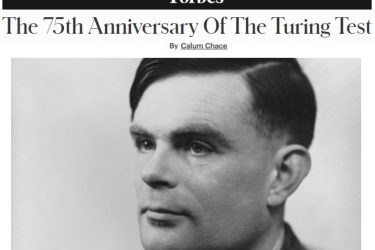The sixth in a series of un-forecasts* – little glimpses of what may lie ahead in the century of two singularities.
It is 2044. Around the world, machines have taken over many of the jobs that humans used to do. Professional drivers were the first big group to succumb to what is now commonly referred to as cognitive automation. Many of them struggled to cope, eking out unsatisfactory existences in the gig economy. Call centre staff and retail workers were next, and then, in the early 2030s, most of the professions started to see large reductions in employment levels too.
Unemployment levels in different countries now range from 40% to 75%, depending mainly on the level of technological sophistication of their economies. Countries with deep expertise in artificial intelligence tend to have relatively low unemployment, as do countries where wage levels were extremely low, as the incentive to automate is less.
Some countries tried to resist the encroachment of the machines, but the effect on their economies was devastating, as they became woefully un-competitive. All the countries which tried it have experienced a change of government, sometimes violently. Argentina is an interesting exception: its people believe themselves and their nation to be unique, and they are willing to tolerate deep poverty levels as a by-product of their search for a different path. The collapse of the Russian government was especially violent, although fortunately there were no mishaps with its nuclear arsenal. What happened to president Putin is a mystery, although there are persistent rumours of a grisly end.
No economists were harmed in No economists were harmed in the making of this un-forecast, but their profession is now depleted, as they almost unanimously refused to accept that automation could cause lasting unemployment until well past the time that it was obvious to everyone else.
Overall, the situation is satisfactory because of a Great Accommodation that was reached between the AI giants and everyone else. Thanks to their mastery of advanced AI, eight American firms and half a dozen Chinese ones now generate almost 75% of the world’s GDP. President Michelle Obama chaired a series of seminal meetings in the pivotal years at the end of the 2030s in which these firms agreed to pay extremely high taxes in order to keep everyone else alive by means of so-called Citizen’s Income Payments, or CIP. The result is now known as the “generous Google” scenario. Only one tech giant CEO held out in opposition to the agreement, and as a result his firm was nationalised and transferred to a consortium of the others. He now tours the world in a very fast yacht, complaining bitterly to anyone who will listen to him.
Some countries introduced land taxes in an attempt to supplement their incomes, but since the land was not contributing much to GDP, their main effect was to severely depress the value of the land.
For a while it looked as if the world faced a serious problem because the AI giants were all based in China and the US. Fortunately the profound wave of isolationism, nationalism and protectionism that broke across the world in the late 2010s had by now reversed. President Obama was able to secure an agreement that the AI giants would be taxed at the point where they delivered their services rather than where they were domiciled.
The payments received by citizens are modest because the profits of the AI giants are constrained by the normal forces of competition. To the surprise of many the payments are not called universal basic income (UBI) because they are not universal. People who still have jobs do not receive them. The payments are easy to sign up for in most countries, and policing is light.
Almost all unemployed citizens (and many employed ones) spend a good deal of time in virtual reality, which is now highly compelling. Government guidelines recommend that people spend at least four hours a day outside VR, but many people ignore this. There was talk in some countries about adjusting the CIP according to how much time the recipients spent outside VR on the grounds that this would improve health outcomes. But it turns out that many people get significant exercise while in VR, so that proposal has generally been dropped.
People are generally stuck economically, in the sense that they have no way to improve their financial situation. Drug use is widespread and is de-criminalised almost everywhere. The view is widespread that humanity’s goal should be to advance towards what is known as a Star Trek economy of radical abundance, where goods and services are virtually free. No-one knows how long this will take, and its arrival does not look imminent.
* This un-forecast is not a prediction. Predictions are almost always wrong, so we can be pretty confident that the future will not turn out exactly like this. It is intended to make the abstract notion of technological unemployment more real, and to contribute to scenario planning. Failing to plan is planning to fail: if you have a plan, you may not achieve it, but if you have no plan, you most certainly won’t. In a complex environment, scenario development is a valuable part of the planning process. Thinking through how we would respond to a sufficient number of carefully thought-out scenarios could well help us to react more quickly when we see the beginnings of what we believe to be a dangerous trend.


